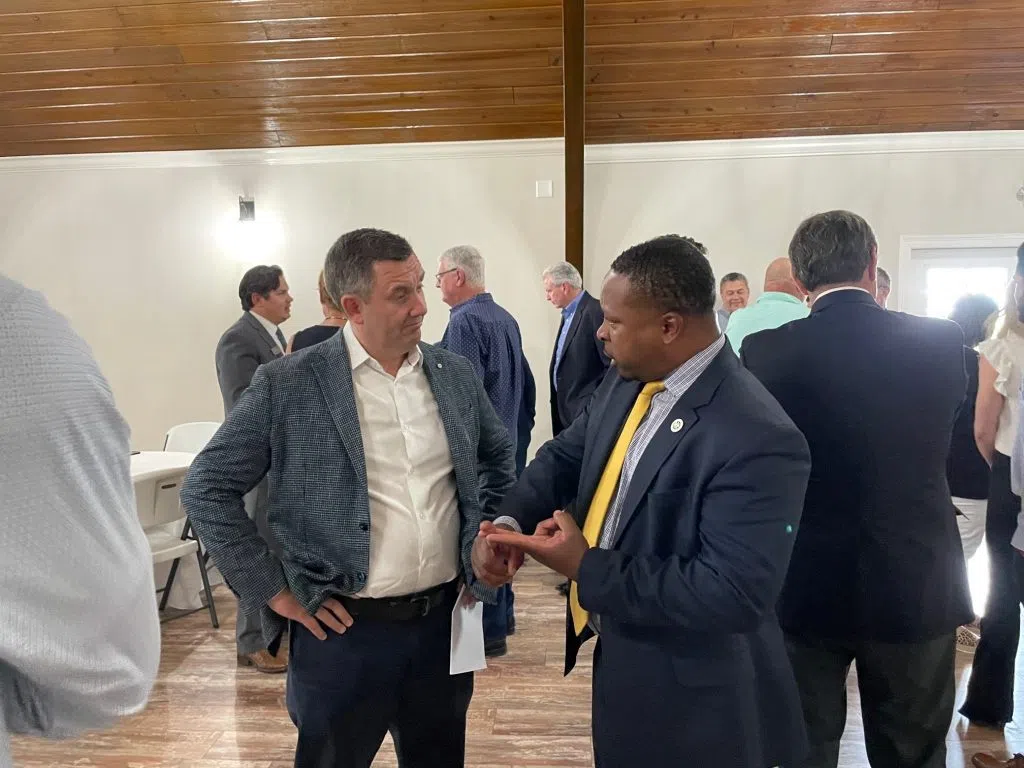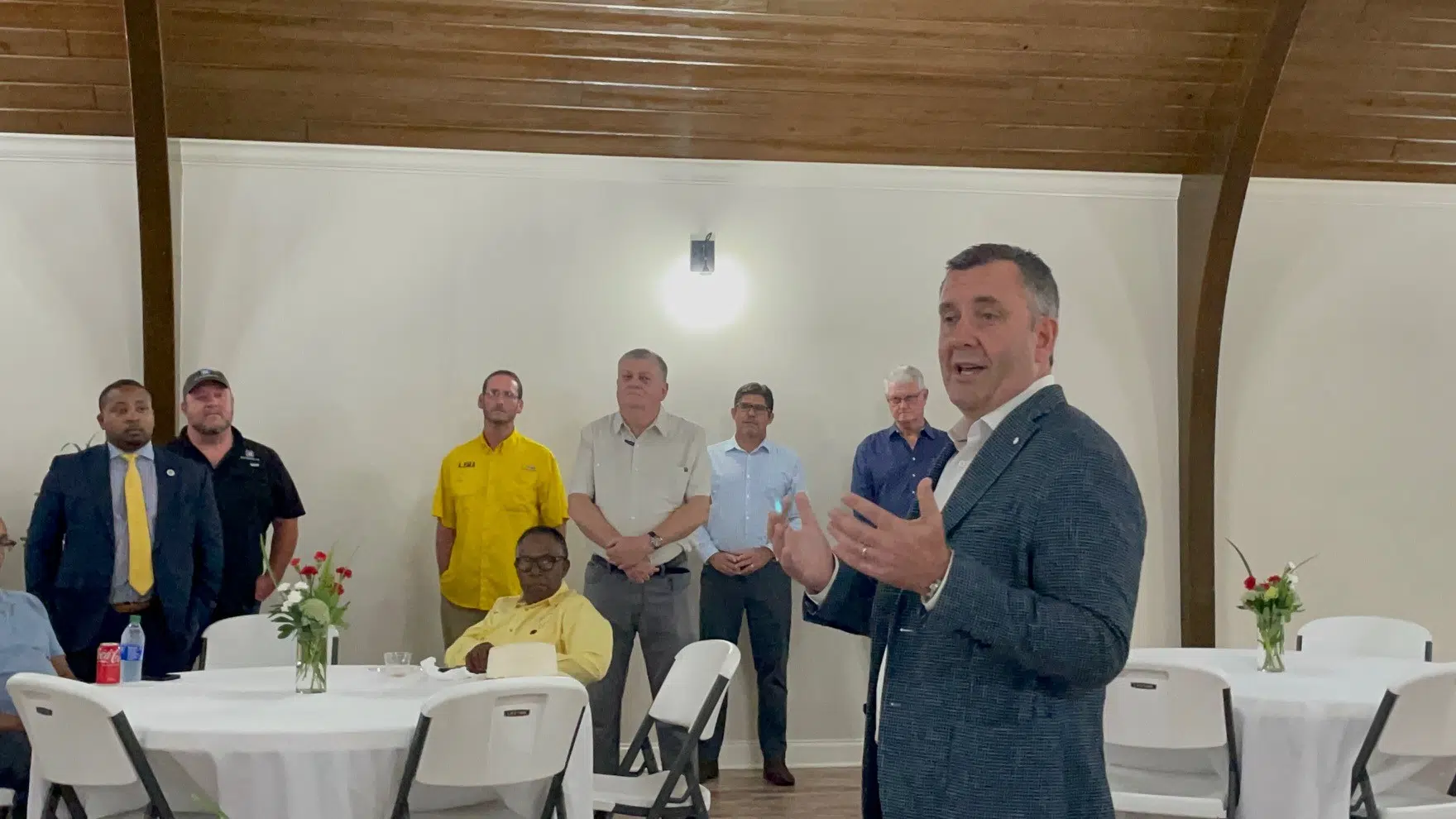VIDALIA, La. –
A reception was held Tuesday at The Gables in Vidalia for Syrah CEO Shaun Verner. This was Verner’s first trip to the U.S. since COVID-19. Verner was excited to finally return to Vidalia to meet with the team on Phase 2 of the facility expansion and witness the growth and success in person.
Starting as a mining company in 2011, Syrah stumbled upon the world’s largest deposit of natural graphic in Mozambique, while looking for uranium in 2013. Natural graphite is used to produce Active Anode Material (AAM) which is the main component of lithium-ion batteries. The batteries which are used in everything from iPhones and solar panels to electric vehicles.
At the time the mine was discovered, there wasn’t a huge market for AAM, but with the tremendous growth rate of electric vehicles being produced, especially over the last 5 years, the market is growing at an exponential rate.
“It’s incredibly exciting for us to have that deposit, because 65% of world’s natural graphite that’s produced today, is produced in China,” Verner explained. As of today, every lithium-ion battery used, has to go through China for at least one production process.
Auto makers and battery manufacturers in the U.S. and Europe have a great desire to diversify their supply of AAM. This opens up a future of expanding opportunities for Syrah’s Vidalia plant.
There are 2 major processing steps to get natural graphite ready for lithium-ion batteries, after it’s mined and in a concentrate. These two steps are what the Vidalia facility does.
Verner goes on to answer, “Why Vidalia?” He said there have always been 5 or 6 key reasons for this choice. Those reasons include, availability of power and utilities, a good site with space for future growth, strong government and community support, and the people.

The success of this choice and the local team secured their ability to get the long-term contract with Tesla. Verner emphasized that this was an “incredible achievement for a very small team.”
This success of the local team has allowed them to raise $180 million in funding, which secures the expansion in Vidalia. This fundraising in turn secured the qualification for a federal grant through the Department of Energy for an addition $107 million.
There is currently a demand for around 100,000 tons of AAM in the U.S. annually. This is projected to quadruple over the next 7-8 years.
The Vidalia facility is currently only set to produce 11,000 tons of AAM. “It gives you a sense of just how huge the opportunity is for us…Today we are thinking about what’s next after that. And we’re already working through the possibility of expanding the plant to 45,000 tons in the coming years,” Verner stated.
With the growth rate of the electric vehicle market, and the Vidalia facility the first and only AAM producer currently, there is an enormous opportunity to “become the premier supplier in the U.S.”
Verner also spent several minutes talking about the support from federal, state, and local government and the community and how grateful he is for that. This support is paramount to Syrah’s success.
“Ultimately, the success that we have will come down to us operating safely,” says Verner. “Secondly, that we continue to respect and protect the environment to ensure that all of our local stakeholders support the development of the company. Thirdly, we’ll continue to work with community programs and government and make sure that we’re able to express the economic benefit and social benefit of the project. And lastly…but certainly not least, is the importance of job creation and economic growth in the region.”
Verner adamantly believes the success of the company is directly related to the success of the community, which is why Syrah focuses on the importance of these relationships, and on hiring and contracting locally, as much as possible.





Comments